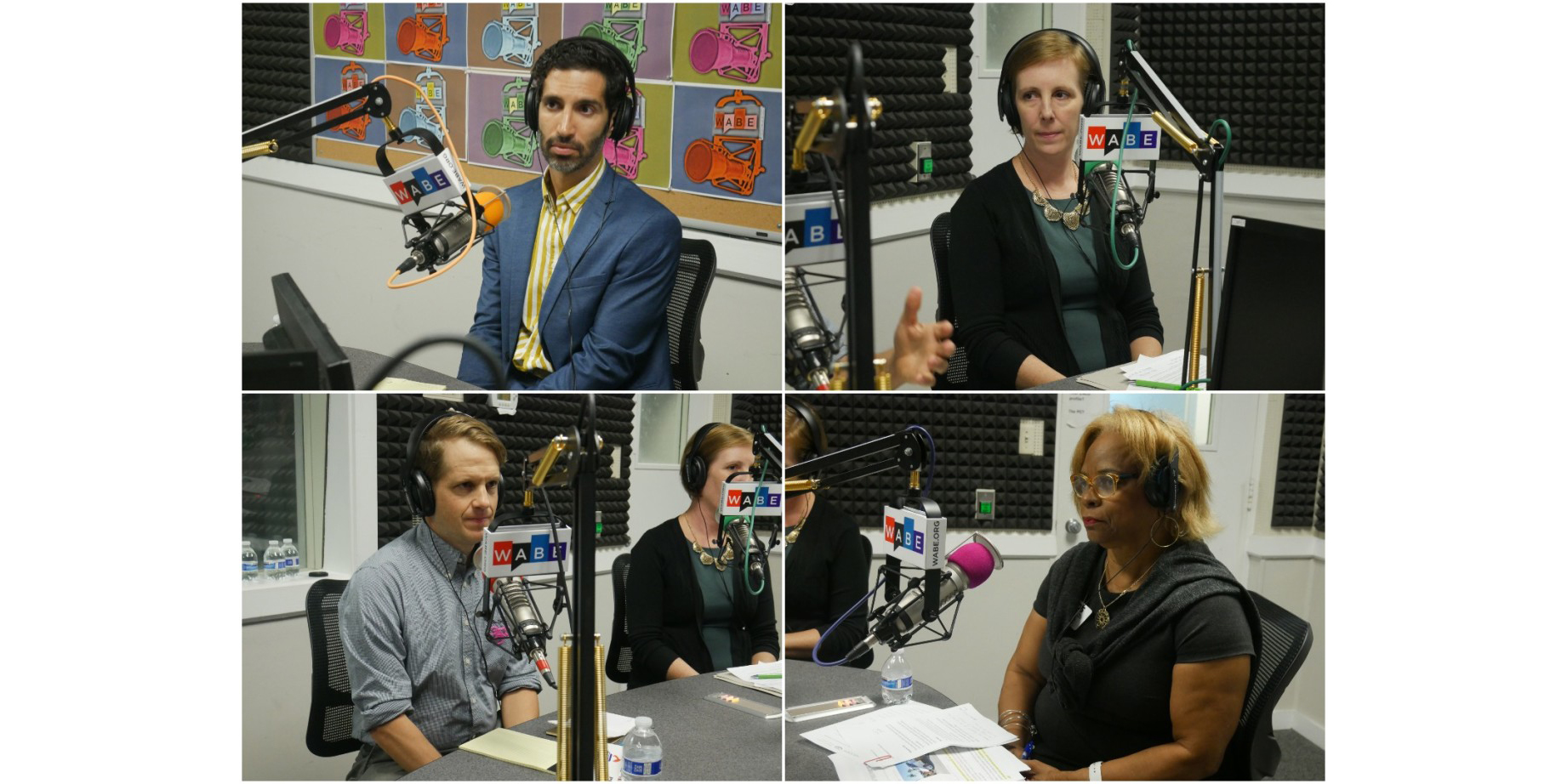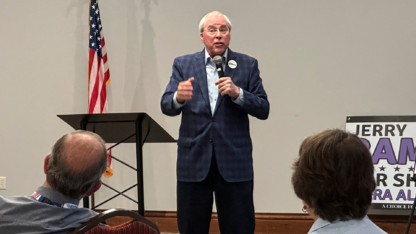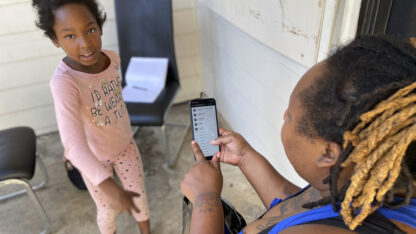Georgia transit advocates weigh in on ‘micromobility revolution’

Nima Daivari, Community Affairs Manager at Lime Georgia; Rebecca Serna, executive director of the Atlanta Bicycle Coalition; Elliott Caldwell, executive director of Georgia Bikes; and Cathy Tyler, president and CEO of Pedestrians Educating Drivers on Safety, joined “Closer Look” for a conversation about the future of micro-mobility.
Grace Walker / WABE
More than one year ago, electric scooters arrived in Atlanta. At the time, it was an entirely new way to get around.
As of July, there are more than 12,000 dockless devices in the city. And, since scooters’ initial launch, city and state officials have grappled with how to regulate the new industry.
Atlanta isn’t the only city with these new challenges. Worldwide, investors have poured more than $5.7 billion into micro-mobility startups in the last four years. It’s a trend some are calling a ‘micro-mobility revolution.’
On Wednesday’s edition of “Closer Look’s” new series, “Gridlocked: What’s Moving Atlanta?” a roundtable of local transportation advocates stopped by the studio for a roundtable discussion about the current state and future of micro-mobility.
On what the micro-mobility shift means:
Rebecca Serna, Executive Director of the Atlanta Bicycle Coalition: “To me, what scooters and other small-wheeled vehicles show are the desire lines. They show that people are wanting so badly to get out of their cars, get out of traffic…”
On how city infrastructures should change:
Cathy Tyler, President and CEO of Pedestrians Educating Drivers on Safety, or PEDS: “The car industry has done amazing things to make the driver safe. I want to know what we’re doing to make the person who can’t afford a car safe. A person who has to walk, a person who has to be on transit. …Are crosswalks safe? Are they painted?”
On the city’s nighttime scooter ban:
Nima Daivari, Community Affairs Manager at Lime Georgia: “We have a lot of stories from retail workers and restaurant workers who are reliant on this mode of transportation at the end of their shifts…and we had a lot of riders, these people who are middle-, lower-income and not necessarily low incomes but need to have access to something that’s $3, $5, $7 to get them home instead of $12, $14, $18.”
On policy at the state and local level:
Elliott Caldwell, Executive Director of Georgia Bikes: “The high injury network, and the clear inequities in that network, it’s not just a local issue, it’s also a state issue. So many of the routes we are talking about are GDOT routes. And so, I’m not going to get into who needs to take charge first, but there clearly needs to be a more collaborative effort…because it’s unacceptable that state routes are as dangerous as they are in the city of Atlanta.”








